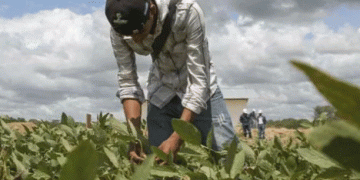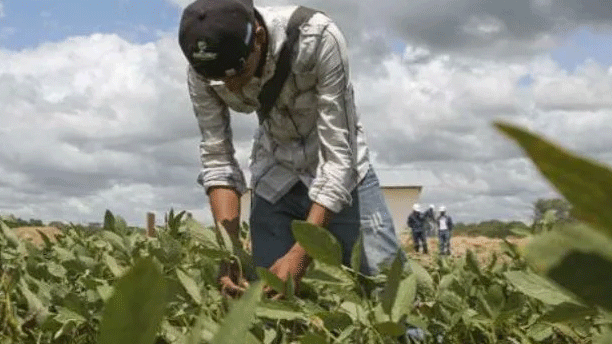As the 2024-2025 summer agricultural season approaches, small-scale producers across the country are grappling with the ongoing issue of fuel shortages. This critical challenge, which has persisted for months, threatens to delay planting schedules and lower yields in the upcoming campaign. According to Demetrio Pérez, president of the Chamber of Small Agricultural Producers (CAPPO), the fuel situation remains far from stable, leaving many farmers in a precarious position.
The Fuel Crisis and Its Impact on Agriculture
Fuel, particularly diesel, is essential for running agricultural machinery, transporting goods, and powering irrigation systems. The shortage has been especially harmful to small and medium-sized farms, which lack the resources to absorb the high costs of scarce fuel. In a recent interview, Pérez highlighted the gravity of the issue: “Two consecutive seasons have been severely affected by drought, and now the scarcity of diesel is preventing us from meeting our planting and harvesting schedules.”
Reports from farmers suggest that diesel supplies are inconsistent, with some regions experiencing more severe shortages than others. This uncertainty is creating ripple effects throughout the agricultural value chain. For example, delayed planting means later harvests, potentially missing critical market windows when prices are higher.
Difficulties in Accessing Inputs and Financing
The fuel crisis is not the only obstacle farmers are facing. A growing number of producers are struggling to access essential inputs such as seeds, fertilizers, and agrochemicals. Traditionally, many farmers relied on credit from commercial suppliers to purchase these inputs. However, the economic situation, marked by a shortage of foreign currency, has led many suppliers to cut their credit lines, leaving farmers without the necessary capital to invest in the upcoming season.
“This lack of access to credit for inputs is a huge blow,” Pérez explained. “Farmers are already in debt from previous seasons that were plagued by drought and fuel shortages. Now, without adequate financing, many will not be able to plant at all.”
The Impact of Drought on Production
Adding to these logistical and financial challenges, recent years have been marked by severe droughts that have significantly reduced yields in many parts of the country. Drought not only impacts water availability but also increases the need for irrigation, which, in turn, requires more fuel. This cyclical dependency has further strained small producers, making it difficult for them to recover from previous losses.
The unpredictable weather patterns, coupled with fuel shortages, have led to a decline in the sector’s overall productivity. Many farmers fear that if the fuel supply does not stabilize soon, the 2024-2025 season could bring even lower yields, exacerbating an already critical situation.
Efforts to Resolve the Crisis
Although some efforts have been made by the government to address the fuel shortages, the situation is far from resolved. Pérez noted that while there have been minor improvements in certain regions, the overall supply remains unreliable, leaving farmers unable to plan with confidence for the upcoming season.
Moreover, without access to necessary inputs and financing, small-scale producers are facing a double burden. Even if fuel becomes more available, the lack of seeds, fertilizers, and other essential resources will still hinder their ability to capitalize on any improvements in fuel availability.
The ongoing fuel shortages, combined with financial constraints and the lingering effects of drought, have created a perfect storm of challenges for small-scale agricultural producers. With the summer planting season fast approaching, the uncertainty surrounding fuel supply and access to essential inputs poses a serious risk to the productivity of the sector. It is crucial for policymakers to prioritize solutions to the fuel crisis while also addressing the broader needs of the agricultural community, including financing and resource availability, to ensure the survival of small farmers in the coming season.































